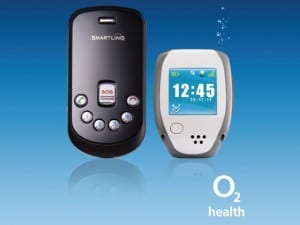O2 UK pulls plug on consumer health services
O2 UK has told customers of its e-health services Help at Hand and Health at Home that it is to cease operations at the end of this year. The decision comes just four months after the services were launched.
July 24, 2013

 O2 UK has told customers that its e-health services Help at Hand and Health at Home are to cease operations at the end of this year and has offered them a refund on device costs, unused airtime and a £100 cash gift by way of an apology.
O2 UK has told customers that its e-health services Help at Hand and Health at Home are to cease operations at the end of this year and has offered them a refund on device costs, unused airtime and a £100 cash gift by way of an apology.
The decision, which was not publicised with a press release but through a message on the firm’s consumer facing website, comes just four months after the services were launched.
An O2 spokesman told Telecoms.com that uptake had been “slower than anticipated” but declined to reveal how many customers the services had attracted. The move does not rule out a return at some later date, he said.
“At the moment we’re withdrawing until such a time as the market in the UK picks up,” the spokesman said.
Charlie Davies, an Ovum analyst who specialises in e-health said she was “not surprised” by O2’s decision to pull out of the market, adding “it is very difficult for operators to develop straightforward, consumer healthcare offerings where they don’t have adjacent supply deals in place.” Davies said that the assisted living solutions market in the UK was already highly competitive.
The fact that the services should be pulled so soon after launch, with O2 having made significant investment to establish and market them suggests the decision was made at Telefónica group level, Davies said.
The Health at Home service included a secure software platform that enabled healthcare professionals to monitor patient’s health and a range of devices used by patients to monitor their symptoms. Help at Hand supplied elderly or at-risk consumers with a simplified mobile device containing an accelerometer to detect falls, a GPS locator and four speed-dial buttons. A web interface allowed users or carers to check location and set parameters and notifications including geo-fences.
Chris Millington, MD for UK and Ireland at Doro, a handset vendor that specialises in products for the senior market, said he was “very disappointed and frustrated” at O2’s decision, in particular the implicit suggestion that the mobile telecare market in the UK does not exist.
“There is a market for mobile telecare in the UK but you have to do it properly and O2 created some of the issues themselves. They made the classic mistake of thinking that old people are incapable and they stigmatised their offering with a limited device,” he said.
Doro had been in discussions with O2 UK around its e-health products for two and a half years prior to the launch, although was not a supplier, and Millington described the operator’s journey to launch as a “long and costly process”. He went on: “They’re a fantastic operator but they overcomplicated the solution so much that it was delayed and they were losing too much money on it.”
Related content:
Healthy Prospects, feature, June 2011
Standard Bearer, interview with Jose Perdomo, director, Global e-health Business Unit, Telefónica, June 2011
About the Author
You May Also Like










.png?width=300&auto=webp&quality=80&disable=upscale)


_1.jpg?width=300&auto=webp&quality=80&disable=upscale)